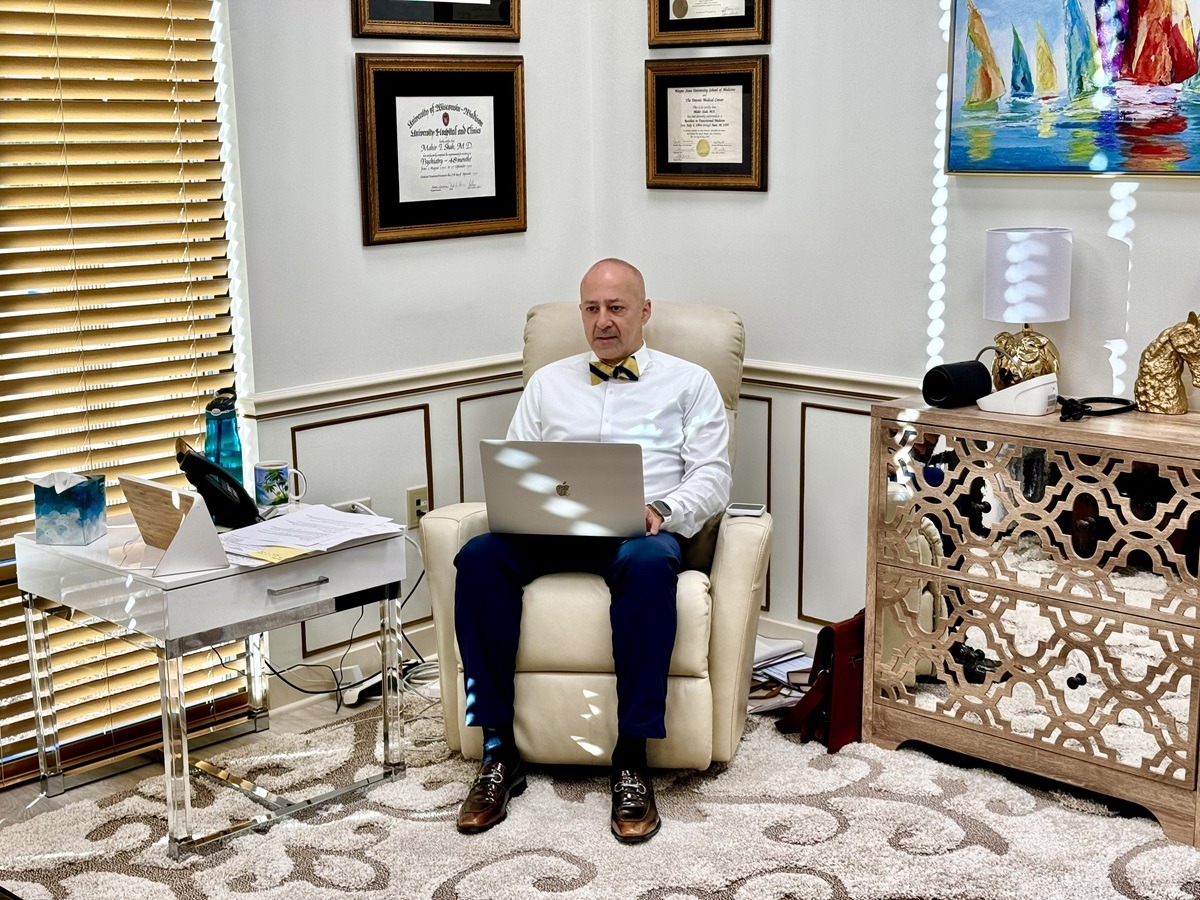Psychiatry
Understanding Psychiatry: A Comprehensive Guide to Mental Health Treatment
In recent years, psychiatry has gained recognition as a crucial component of mental health treatment. Despite its growing popularity, there remains confusion surrounding what psychiatry entails and its effectiveness. This article aims to provide a comprehensive overview of psychiatry, including its definition, various approaches, benefits, and common misconceptions.
###
“Comprehensive Psychiatry, Psychotherapy & Collaborative Care: A Holistic Approach to Mental Health”
I. What is Psychiatry?
Psychiatry is a medical specialty focused on the diagnosis, treatment, and prevention of mental disorders. Psychiatrists are medical doctors who specialize in understanding the biological, psychological, and social factors contributing to mental illness.
A. The Psychiatrist-Patient Relationship
Central to psychiatry is the therapeutic relationship between a psychiatrist and their patient. Psychiatrists conduct comprehensive assessments, provide evidence-based treatment, and offer ongoing support and monitoring.
B. Goals of Psychiatry
The primary goal of psychiatry is to alleviate symptoms, improve functioning, and enhance the overall quality of life for individuals with mental health concerns. This may involve medication management, psychotherapy, or a combination of both.
II. Types of Psychiatric Treatment
There are various approaches to psychiatric treatment, each tailored to meet the unique needs of individuals. Some common modalities include:
A. Medication Management
Psychiatric medications, such as antidepressants, antipsychotics, and mood stabilizers, are prescribed to alleviate symptoms of mental illness. Psychiatrists carefully monitor medication effectiveness and potential side effects.
B. Psychotherapy
In addition to medication management, psychiatrists may offer psychotherapy to address psychological and emotional issues. Cognitive-behavioral therapy (CBT), psychodynamic therapy, and supportive therapy are among the many therapeutic modalities utilized.
C. Hospitalization
In cases of severe mental illness or acute crisis, psychiatric hospitalization may be necessary for stabilization and intensive treatment. Inpatient and outpatient psychiatric facilities provide comprehensive care and support.
D. Electroconvulsive Therapy (ECT)
ECT is a medical treatment for severe depression, mania, and certain other mental health disorders. It involves the administration of controlled electrical currents to induce a therapeutic seizure under general anesthesia.
II. What Psychiatry Helps With
Psychiatry is effective in treating a wide range of mental health disorders and conditions, including:
A. Mood Disorders
Psychiatry helps individuals manage symptoms of mood disorders, such as depression, bipolar disorder, and seasonal affective disorder. Medication and psychotherapy are often utilized to stabilize mood and alleviate symptoms.
B. Anxiety Disorders
For those experiencing anxiety disorders, psychiatry offers medications and therapeutic interventions to reduce symptoms of excessive worry, panic, and phobias.
C. Psychotic Disorders
Psychiatry plays a crucial role in the treatment of psychotic disorders like schizophrenia and schizoaffective disorder. Antipsychotic medications and supportive therapies help manage hallucinations, delusions, and disorganized thinking.
D. Substance Use Disorders
Psychiatry addresses substance use disorders through medication-assisted treatment, counseling, and support groups. Psychiatrists help individuals achieve and maintain sobriety while addressing underlying issues contributing to addiction.
E. Neurodevelopmental Disorders
Psychiatry provides diagnostic evaluation and ongoing management for neurodevelopmental disorders such as attention-deficit/hyperactivity disorder (ADHD), autism spectrum disorder, and intellectual disabilities.
V. Debunking Common Misconceptions
Despite its efficacy, psychiatry is often subject to misconceptions and stigma. It’s essential to address and debunk these myths, such as:
A. Medication is the only treatment option in psychiatry.
B. Psychiatric medications are addictive.
C. Psychiatric treatment is only for severe mental illness.
D. Psychiatry is solely about prescribing medication; therapy is unnecessary.
Psychiatry is a vital component of mental health treatment, offering comprehensive care and support for individuals experiencing mental illness. By understanding its principles, various treatment modalities, and the wide range of conditions it can address, individuals can make informed decisions about seeking psychiatric help. Through collaboration with skilled psychiatrists, individuals can achieve symptom relief, improve functioning, and enhance their overall well-being. Remember, seeking psychiatric treatment is a proactive step toward optimal mental health and recovery.
Find out more on wiki
WE ARE HERE TO HELP
Let's see if we are the right fit.
Let's embark on a journey of self-discovery together. At Integrity Behavioral Health we believe in the power of a meaningful conversation.
Our initial consultations offer you the opportunity to get to know us, and for us to understand your unique needs.
Our Team is dedicated to providing compassionate care. We understand that reaching out for help can be daunting, but rest assured, our office is a safe and welcoming space for you and your family.
Discover the right fit today and start your path toward overall well-being. Make an appointment and let's begin this transformative journey together.
Let's Find Out Together

